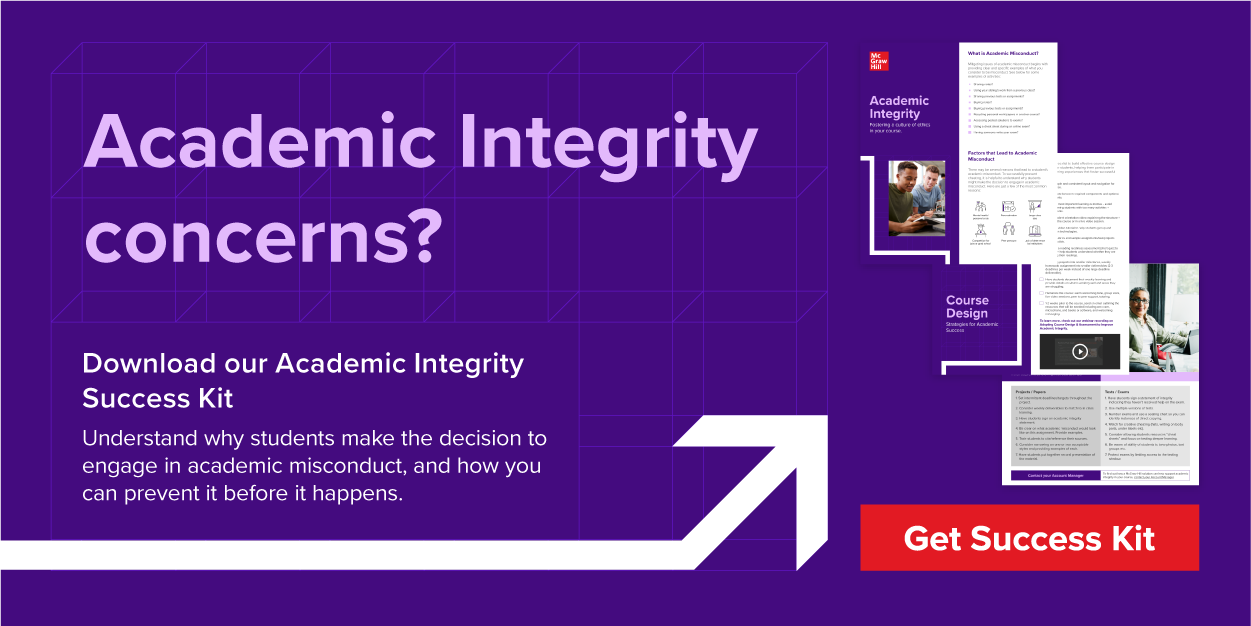What is Digital Literacy in Higher Education?
Using digital tools and technology has become more important than ever as the world grapples with the pandemic and its aftermath. Educators at all levels, from pre-K to postsecondary, needed to shift gears to create viable ways for students to learn effectively using digital technology.
Digital literacy is of prime importance for fostering better outcomes for students in higher education. We cannot assume that every student entering college or university knows the basics of digital literacy and how to excel in the virtual or hybrid classroom. In this article, we’ll help you understand digital literacy, why it’s important for students, and how you can encourage digital literacy among your students.
What is digital literacy?
Digital literacy is a skill that allows students to evaluate, use, and create digital information. Students must use critical thinking to determine what sources are valid when assessing and utilizing information. Digital literacy requires both cognitive and technical skills to manage, create and communicate information, all while thinking critically.
As the digital world changes quickly, so does the definition of digital literacy. Students and instructors alike are continually learning how best to access, manipulate, understand and produce information so they can solve problems and thrive in our digital-first world.
Why is digital literacy important for online teaching and learning?
- Digital literacy is vital to online teaching and learning because a lot of student work in higher education happens independent of instructors.
- Teaching digital literacy increases a student’s engagement in their coursework and helps them achieve better learning outcomes.
- Because students are exposed to so much information every day through their smartphones, apps, social media, and news outlets, they must develop skills to discern which sources of information are reputable.
- From an instructor perspective, when students are equipped with digital literacy skills, their work will be improved and free of faulty citations or poor sourcing of information.
How do I encourage digital literacy in my course?
Emphasize critical thinking
We know that much of the information we consume comes from a wide range of sources with varying degrees of credibility. The sheer amount of information available to us can be overwhelming to today’s students, and can make them more vulnerable to misinformation and “fake news”. One of the most essential components of teaching digital literacy in higher education is to help students become more critical of the information they consume, ask questions and seek objectivity in their research.
Encourage creativity
Creativity sparks an emotional investment in an assignment, which, in turn, lays the groundwork for long-term memory retention. Foster creativity in your course assignments, going beyond ordinary essays and quizzes to projects that allow students to use creative online tools to expand their digital literacy and showcase their knowledge in non-traditional ways. Provide students with freedom to choose what types of technology they use and experiment with it in new and creative ways.
Provide opportunities for collaboration and problem solving
Create learning experiences that offer opportunities for digital collaboration with peers. Virtual group work is an excellent space for students to develop their digital literacy skills in a environment that allows them to self-direct their problem solving with support from peers. Whether you choose virtual meetings, shared documents or another type of collaborative platform, students will benefit from the diverse experiences of their classmates.
Focus on their online brand
A student’s online identity is something they should protect and build to positively impact their future career prospects. Everyone leaves a digital footprint online and students should be conscious of the information they are sharing online and how their data is stored and shared. From reading privacy policies to adjusting security settings, encourage students to learn more about how to safeguard their online reputation. Additionally, provide strategies on how to share the right types of content to help build their personal brand online and have respectful and impactful conversations on the web.
Digital literacy skills are an important part of student success in higher education and in their future careers. Digital literacy opens up the potential for both students and instructors to improve learning outcomes.


